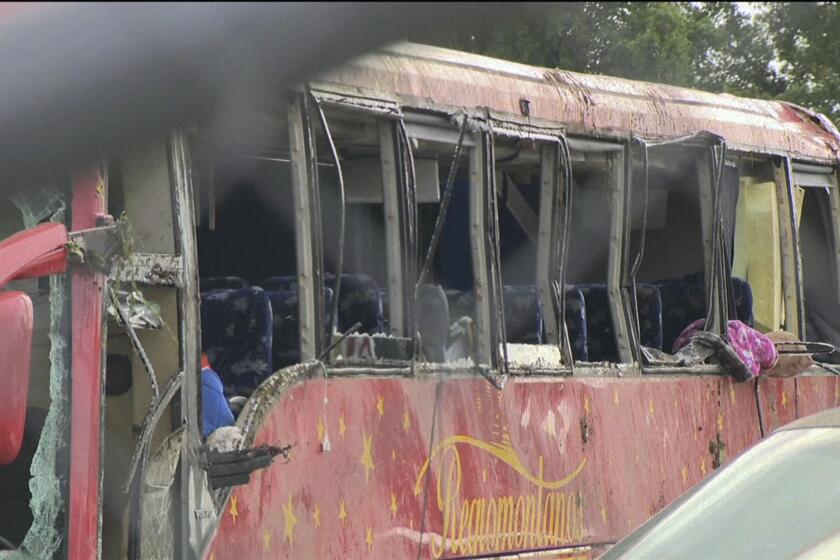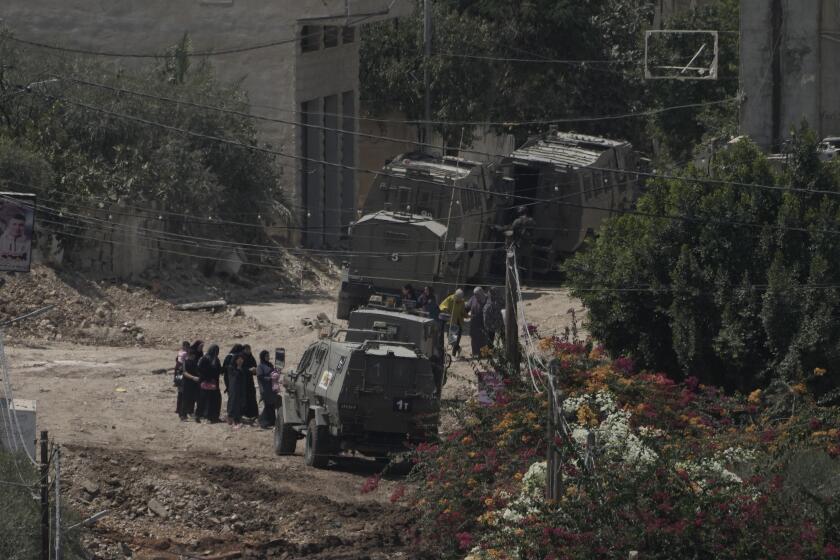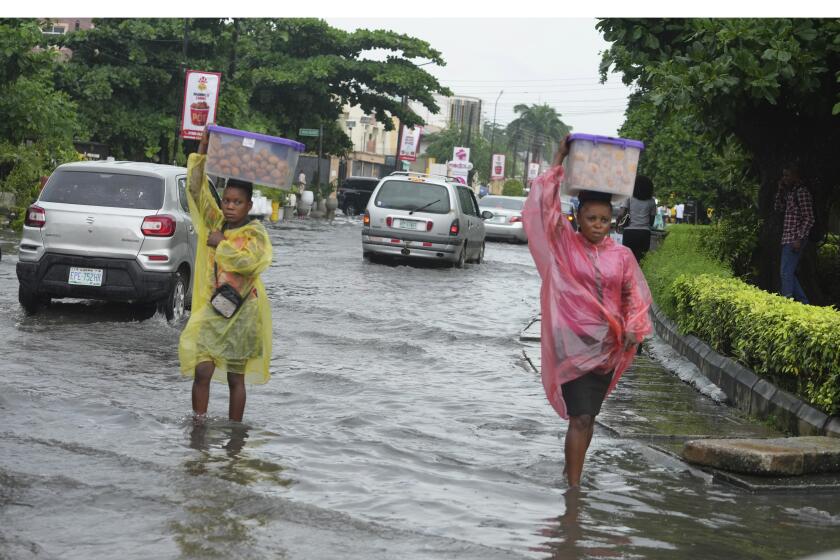NEWS ANALYSIS : Andreotti Under Siege as Italy Prepares to Vote
And once more, a Roman circus. The lame duck Italian government of Prime Minister Giulio Andreotti looks like a gladiator who has fought one bout too many.
Limping toward spring elections, Andreotti’s four-party centrist coalition is besieged from all sides. The attackers include Eurocrats in Brussels, disgruntled local businessmen, the leaders of anti-Establishment political parties and sharp-tongued Italian bishops.
Joining the fray, and often leading it, is Italian President Francesco Cossiga, who, like the rest of the pack, insists that the time has come for radical institutional changes in the way Italy is run.
The Italian private sector and increasing numbers of striking workers complain of a big government deficit that has Italy on the brink of recession after a boom decade. Despite promises to balance the budget, the deficit is 10.8% of the gross domestic product. That is large enough to raise eyebrows at the International Monetary Fund, among Italy’s partners in the European Community, and among Italians voters, who see their country as a first-rank world economic power.
Workers complain of inflation of about 6%, nearly double the EC average. Worse, Italy’s public debt exceeds $1 trillion, more than one year’s national product and one-third of all EC government debt.
Most of Italy’s EC partners have by now adopted about three-fourths of the unifying regulations that are scheduled to produce a frontier-free community at the end of next year. But Italy’s fragmented and dilatory Parliament has enacted fewer than half of them.
All over Italy, it seems, protest political parties are springing up to challenge a diffuse, weak-executive political system that has served Italy well for nearly half a century but seems to have outlived its effectiveness. Last week, a covey of new anti-Establishment parties drew 36% of the vote in the industrial city of Brescia.
The protest was led by a right-wing regionalist movement, the Lombard League, which wants to restructure Italy into a home-rule federalist state. Andreotti’s Christian Democrats, who have held sway over Italy and cities like Brescia since World War II, finished second to the league by 94 votes.
Common to complaints by grass-roots protest parties, covering the spectrum from neo-Fascist to Green, is that they have had enough of big-party politics in which the parties prosper at the people’s expense. Italy’s public services, they note, are scandalous, fraught with inefficiency and corruption.
The government’s ethical standards and its inability to control organized crime--Italy’s public enemy No. 1--are also drawing fire from the powerful Roman Catholic Church, traditionally a pillar of Christian Democratic support.
In an extraordinary recent document, Italy’s bishops lambasted their country as a nation “without law, feudal . . . dominated by privilege and threatened by criminality.” The unprecedented attack lamented that the state’s inability to cope with national problems such as organized crime has generated “a sense of impotence, resignation, almost acquiescence” among Italians.
The ferment, which will climax in general elections next spring, is unabashedly fueled by irascible, erratic Cossiga. He is a lifelong Christian Democrat, but the Italian constitution requires him to be neutral in the supposedly figurehead post as chief of state.
No figurehead, Cossiga. He is at war with his former Christian Democratic colleagues, whom he denounces as inept, and the former Italian Communist Party, now irrevocably split but still Italy’s second-largest party and the mainstay of the opposition for four decades.
The 62-year-old president says the former Communists have been co-opted by the system and have become so comfortable within it that they no longer represent any real alternative to Christian Democratic rule.
Cossiga recently denounced former Communist Party boss Achille Occhetto, whose party is now called the Democratic Left, as “a gnome leading a party of gnomes.” In an insiders’ feud over the political past, the former Communists are now demanding Cossiga’s impeachment. The process, before a splintered Parliament in which Occhetto lacks enough votes, will take at least five months, and Cossiga’s term expires in July.
What Cossiga and other critics want is an overhaul of the political system to create a stronger chief executive more akin to the French or German model. They also want electoral reform to reduce the number of parties in Parliament; there are now more than a dozen, but only a handful draw even 5% of the national vote.
The Christian Democrats and their Socialist allies say they favor change, but the smaller parties are resisting reforms that would spell their parliamentary extinction.
How change will come is unclear, but that change is needed is by now well accepted. One maverick Christian Democrat is sponsoring referendums that would impose sweeping electoral and parliamentary reforms.
Cossiga, for one, will be glad to see them. He said not long ago: “If a citizen managed his personal affairs the way the government is running those of the Italian nation, he would quickly wind up in jail.”
More to Read
Sign up for Essential California
The most important California stories and recommendations in your inbox every morning.
You may occasionally receive promotional content from the Los Angeles Times.






